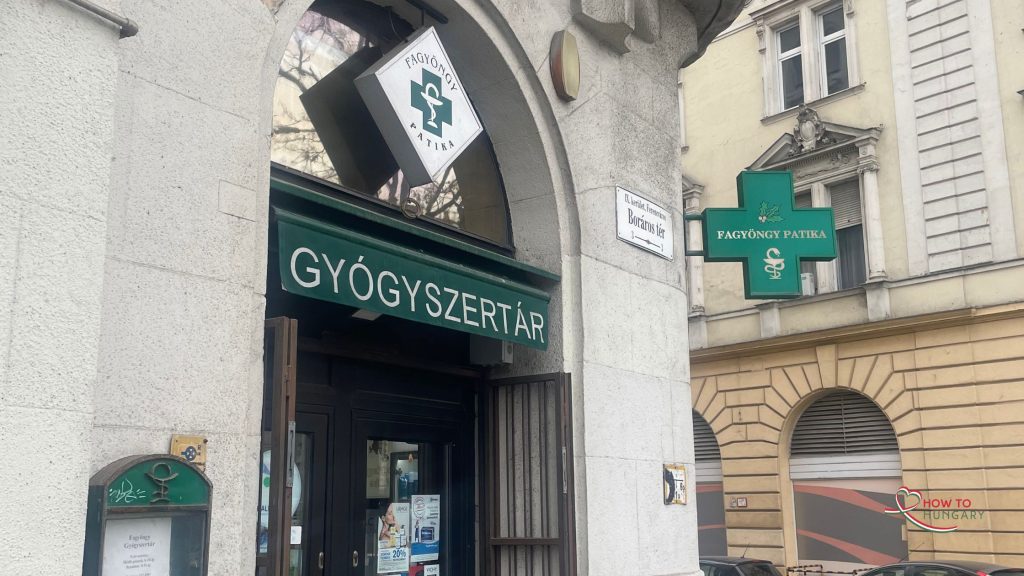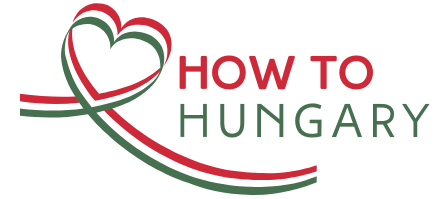Let’s be honest – nobody moves to Hungary for the pharmacies.
But as someone who did move here (with one very specific prescription in tow), I can tell you: understanding how prescription medicine in Hungary works is one of those surprisingly important things you’ll want to get right.
While I don’t have any major health issues, I do have a prescription I need regularly. In my case, it’s not something I can pick up at the local gyógyszertár.
Mine comes in from Germany through a specialist service called PharmaExpressz.
And yes, I use it myself. (But more on that in a minute.)
Let’s break down how the prescription system works here and more importantly, how to get the meds you need without losing your mind. (Or your luggage space to paracetamol.)
How to Get a Prescription in Hungary
To access the public system and get discounted medicine, you need a TAJ card (your Hungarian social insurance card). This proves you’re contributing to Hungary’s healthcare system and unlocks subsidies on prescription drugs.
Here’s how it works:
- If you’re employed, your employer usually registers you.
- If you’re self-employed or retired, you’ll need to handle it at your local NEAK or Kormányablak office.
- You’ll need your address card, residency permit, passport, and in some cases, a contract proving eligibility (like a work agreement).
Once you’re in the system, your doctor can write electronic prescriptions (eReceptek) through Hungary’s national EESZT system. No paper, no pen – just your TAJ card and ID at the pharmacy.
What If You Don’t Have a TAJ Card Yet?
No TAJ card? No problem – at least for the basics.
If you have private health insurance (which many people do during their first year in Hungary or while waiting for TAJ eligibility), you can still visit a private doctor. Private doctors issue their own prescriptions, and you can fill them at any pharmacy without a TAJ card. You’ll simply pay the full price for the medicine upfront and if your insurance plan covers prescriptions, you can usually claim it back later.
Just be sure to keep all your receipts (számla in Hungarian) and ask the doctor or clinic for a full medical invoice (orvosi számla) if you need to submit it for reimbursement. A little paperwork now can save a lot of money later.
What About the EHIC Card?
If you’re an EU citizen and you have a European Health Insurance Card (EHIC), it will cover you for emergency medical care during short stays in Hungary but it doesn’t work the same way as a TAJ card.
You can still get a prescription with an EHIC, but you’ll usually pay full price for your medicine unless your doctor codes it as urgent or essential care.
For longer stays, getting a TAJ card is the real game-changer: it unlocks the proper subsidies and lower prices for everyday prescriptions.
Pharmacies and Subsidised Prescription Medicine in Hungary
Pharmacies (gyógyszertárak) are easy to find and usually marked by a green cross. You won’t find OTC medications like ibuprofen at the grocery store – you’ll need the pharmacy for those too.
If you’re part of the public healthcare system:
- Many prescription medications are subsidised, meaning you’ll pay a much lower price.
- For example, a statin that might cost €30–40 at full price could cost as little as €4–€8 with a TAJ card, depending on the subsidy assigned by NEAK.
- Always ask for generic equivalents – they’re widely used and cheaper.
Without a TAJ card, expect to pay full price, which can be a bit of a shocker if you’re used to NHS or Canadian-style prescription caps.
According to Hungary’s National Health Insurance Fund (NEAK), in Q3 2024, over 92% of prescriptions filled in Hungary were subsidised by the state – one of the highest rates in the EU. (NEAK source)
What If My Medication Isn’t Available in Hungary?
Welcome to my world.
While most common medications are available in Hungary, there are always exceptions – especially for newer or specialist treatments. If your medication isn’t stocked at a Hungarian pharmacy, there are two things you can do:
1. Ask your doctor for a substitute
Doctors are familiar with the Hungarian formulary and may recommend a therapeutic equivalent. However, you’ll want to research and confirm with your home-country doctor, too.
2. Use an international pharmacy like PharmaExpressz.hu
PharmaExpressz is a licensed Budapest-based pharmacy that can order medications not available locally. They source from Germany, Austria, and other EU countries, and they’ll deliver directly to your home (although I pick mine up on-site).
Important tip: If you’re ordering internationally through PharmaExpressz, you will need a paper prescription signed by your doctor – not just an electronic one. Hungarian law requires a hard copy for imported medicines, even if you’re already in the public system with a TAJ card. (Yes, it’s a little old-fashioned. Yes, it matters.)
In my case, it meant a quick extra visit to my private doctor for a written prescription and then everything sailed through without a hitch.

Pharmacies (gyógyszertárak) are where you’ll find everything from paracetamol to life-saving prescriptions. Just don’t expect to grab aspirin at the grocery store! Look for the green cross and you’re in the right place.
e-Prescriptions and the EESZT System
Hungary’s eHealth system – called EESZT – stores all prescriptions digitally. Your GP logs in, adds the script, and you pick it up at any pharmacy with your TAJ card and ID.
You can also track your prescriptions via the EgészségAblak app, available in English, which gives you a real-time view of your medication history and any active prescriptions.
And honestly? I love this app.
I can never remember which prescriptions I’ve had in the past – especially when you’re bouncing between doctors, specialists, and pharmacies and EgészségAblak makes it ridiculously easy. Not only does it show your current prescriptions, but it also stores your old ones, your lab results, diagnostic reports, and even hospital discharge summaries.
It’s like carrying your entire medical file in your pocket, without the forest’s worth of paperwork. Trust me, it’s worth downloading the minute you get your TAJ card sorted.
Tips for Managing Prescription Medicine in Hungary
- Always carry your TAJ card. It’s your access pass to discounts.
- Pharmacists are knowledgeable, but may not speak much English – use Google Translate or write down the Hungarian name of your medicine in advance.
- Keep packaging from your old meds. Doctors and pharmacists can identify ingredients more easily if you show them what you were prescribed back home.
- Plan ahead. If your prescription runs out while you’re abroad, Hungarian GPs may hesitate to refill it unless they can verify your treatment plan.
The Bottom Line on Pills, Prescriptions, and Peace of Mind
Navigating the prescription medicine landscape in Hungary may seem daunting at first, but with the right information and resources, it becomes manageable. The combination of the TAJ card, the EESZT system, and accessible pharmacies ensures that residents and expats alike can receive the medications they need efficiently.
Resources:
Remember, always consult with healthcare professionals regarding your medications and stay informed about the systems in place to support your health in Hungary.
I go deeper into all of this, including how to get a TAJ card, what to expect from public vs. private doctors, and even how to navigate emergency care, in my book, HOW TO HUNGARY: Budapest & Beyond. Over 350 pages of practical, expert insight, and no, it’s not sponsored by anyone (not even PharmaExpressz).
Additionally, sign up for my FREE monthly newsletter – the HOW TO HUNGARY Insider.
Living in a new country is never simple but it doesn’t have to be overwhelming.

Anikó Woods is a Canadian-Hungarian writer, technology specialist, and digital strategist who swapped Toronto traffic for Hungarian bureaucracy. She’s the creator of HOW TO HUNGARY: Budapest & Beyond. Since moving to Hungary in 2017, she’s been deep in the paperwork trenches – fact-checking, interviewing experts, and helping others make sense of the madness. Her writing turns chaos into clarity, with a few laughs (and wine recommendations) along the way.

0 Comments